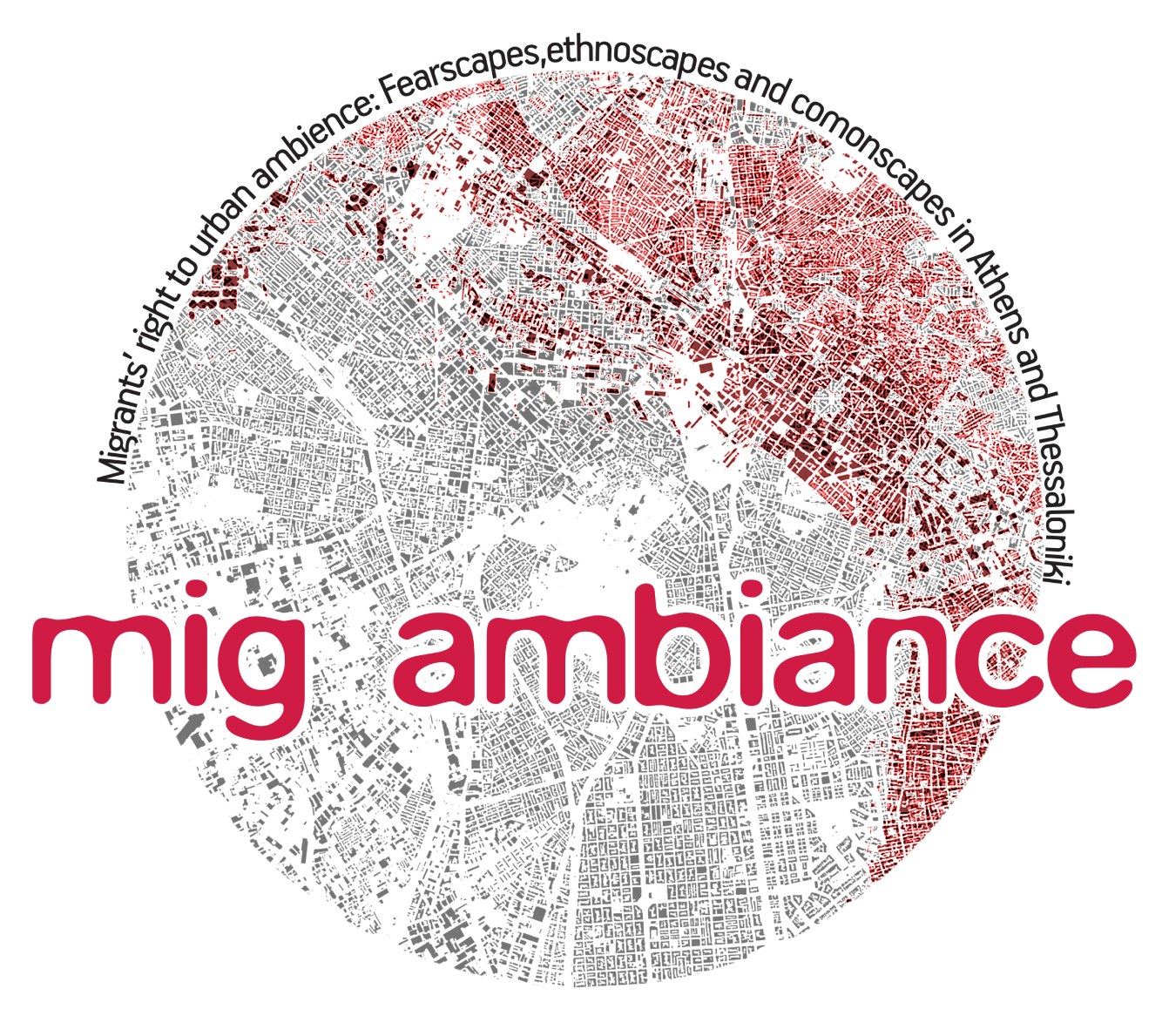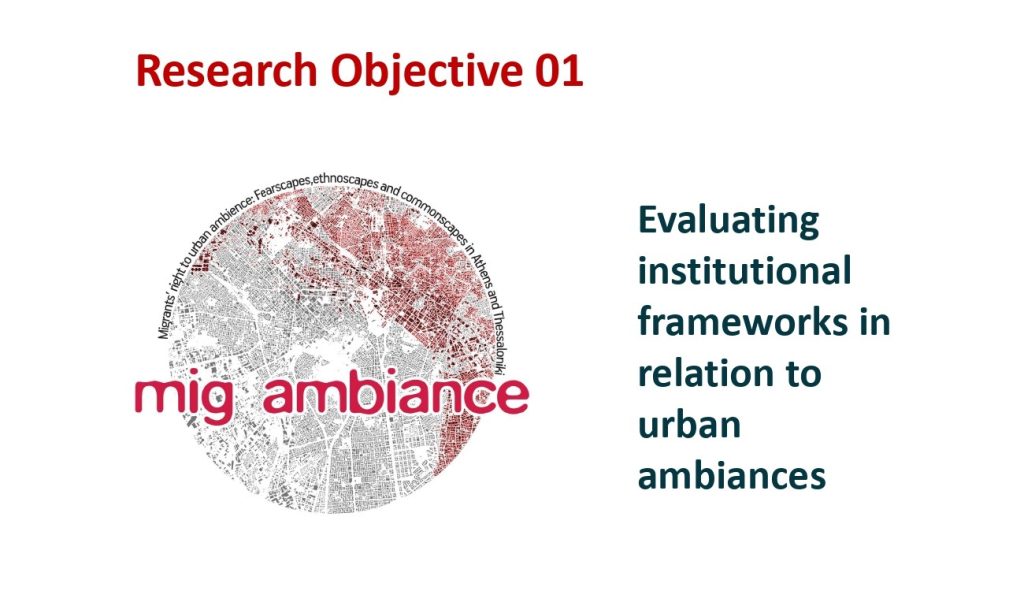
To monitor, map and assess the institutional framework of migrants’ access to the city in Athens and Thessaloniki, considering it an essential step to their integration paths and a precondition for enjoyment of social and civil rights. More precisely, to evaluate how urban planning, public policies, and regulations discriminate
against or favour migrant-initiated ambiances in the city. The central question is: To what extent do Athens and Thessaloniki, meet basic standards regarding the social inclusion, protection and safe access of migrants to the city?
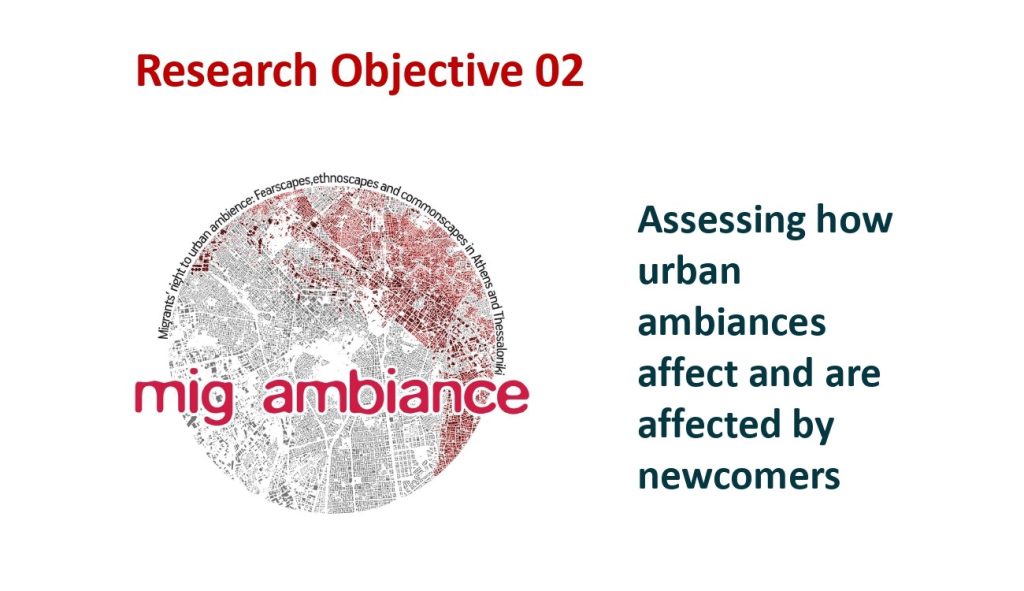
To examine and document fearscapes, ethnoscapes and commonscapes in Athens and Thessaloniki. More specifically, to map which areas do migrants consider safe and which they are afraid to move to, for what reasons, what times of the day, and how their perceptions of urban ambiance may differ according to gender, race, ethnicity, age or migration status. Also, to explore what strategies do they develop to avoid unsafe spaces and through which practices they appropriate urban space. Lastly, to compare differentiations in migrants’ perception of urban ambiance in the two cities. Thus, the main research question is: How does the ambiance of the city change according to the practices of the migrants and how do migrants adapt their movements in the city according to existing urban ambiances?
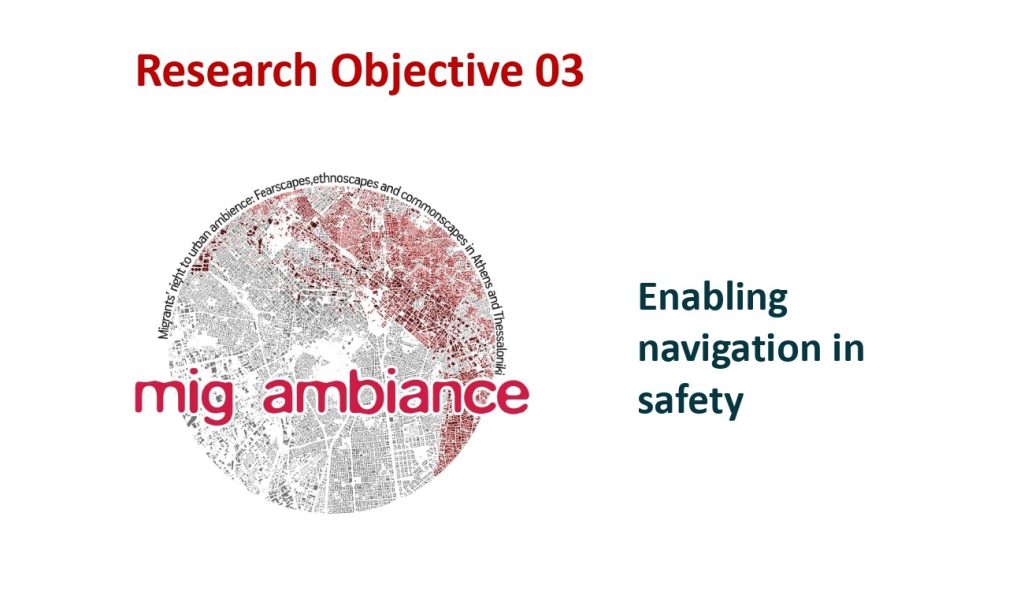
To create the MIG-AMBIANCE mobile phone application, which will collect, map and visualize in a platform the opinions and senses of migrants about fearscapes and safe urban spaces in Athens and Thessaloniki. The application will map the existing state, NGOs’, migrant community and urban commoning infrastructures, services, projects and solidarity groups which address newcomers in Athens and Thessaloniki. Also, the application will record the areas of Athens and Thessaloniki in which violent incidents against migrants have taken place. The MIG-AMBIANCE mobile application will be multilingual and will allow migrants to add, evaluate and comment on the aforementioned places. This way the experiences and opinions of migrants will be voiced, shared and circulated. The mobile application will thus address a crucial question: How can a migrant collect information about dangerous and safe spaces to navigate safely Athens and Thessaloniki?
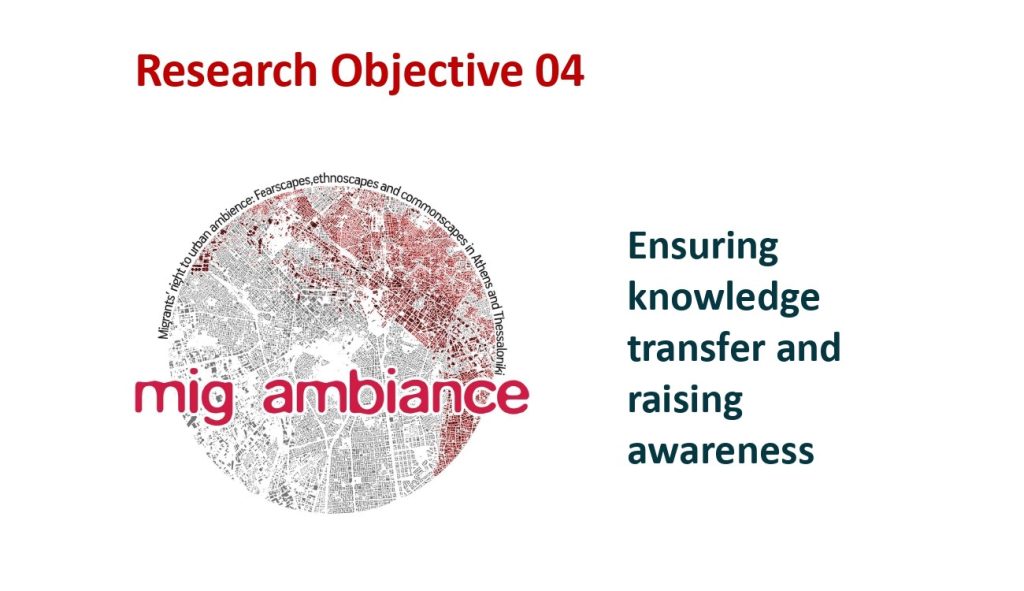
To create podcasts and conduct living labs and open public events-workshops on the migrants’ right to urban ambiance involving residents, migrant communities, civil society and policy makers. These will address the question: How is it possible to disseminate research outcomes to the wider public, improve knowledge sharing and increase awareness on migrants’ right to urban ambiance?
